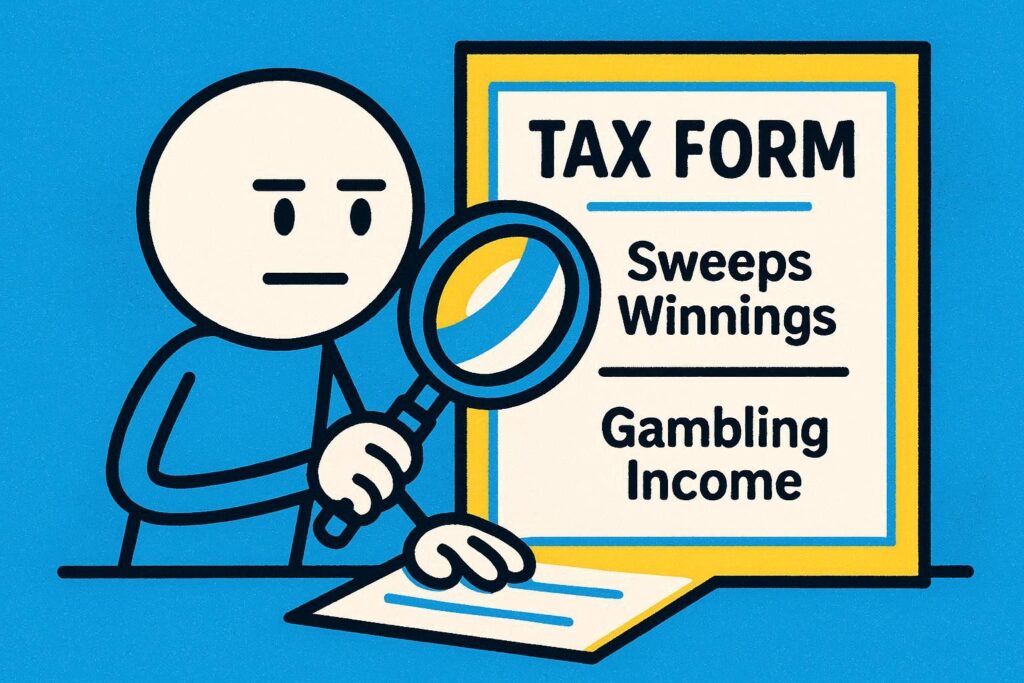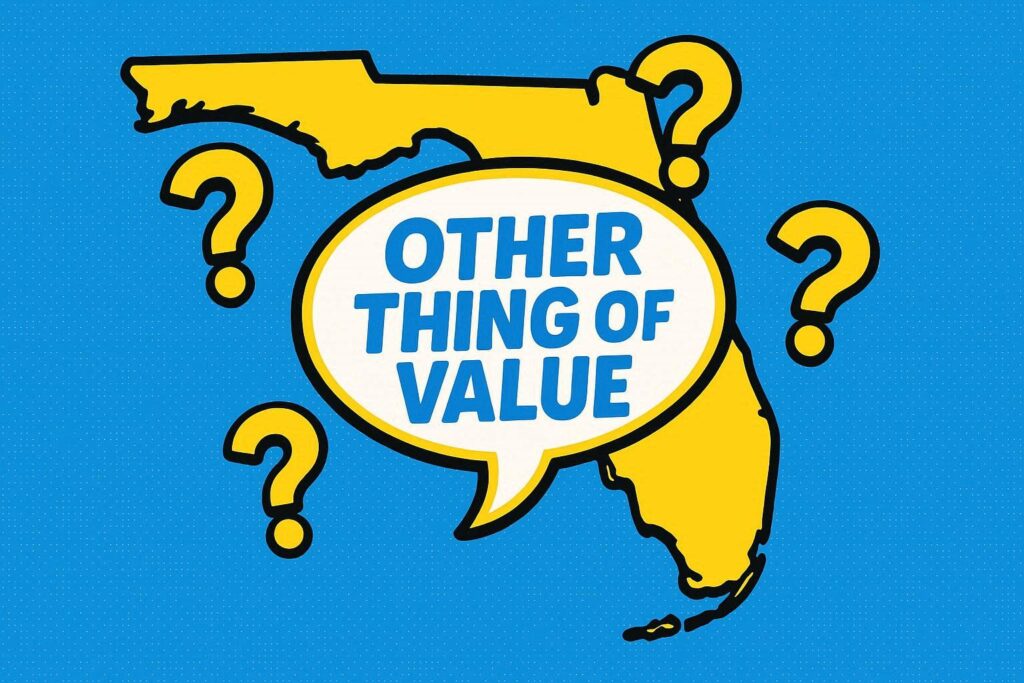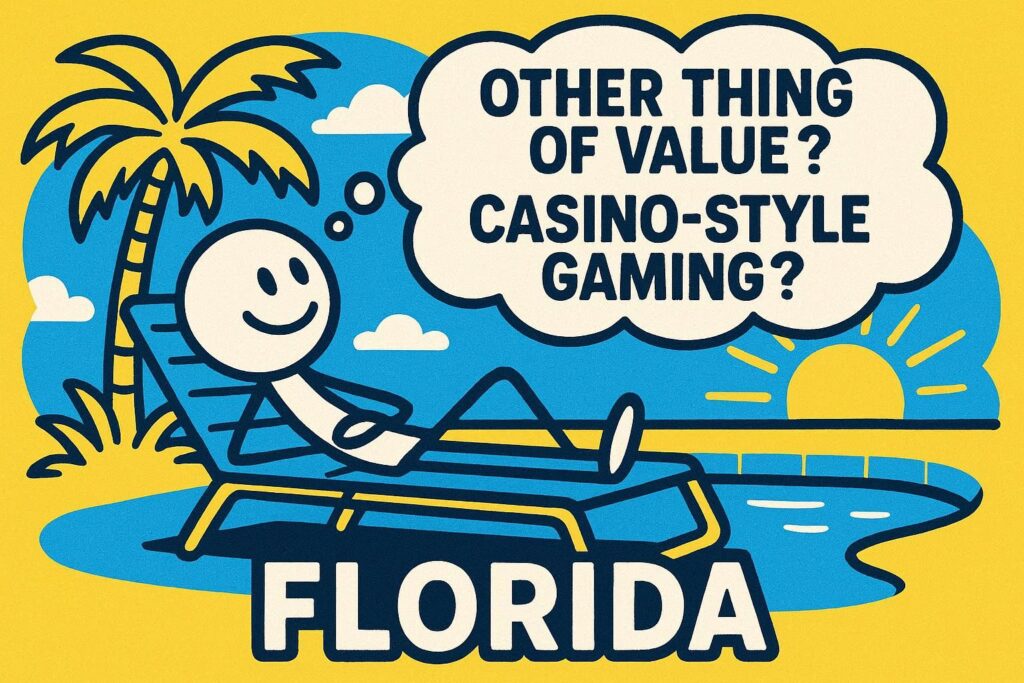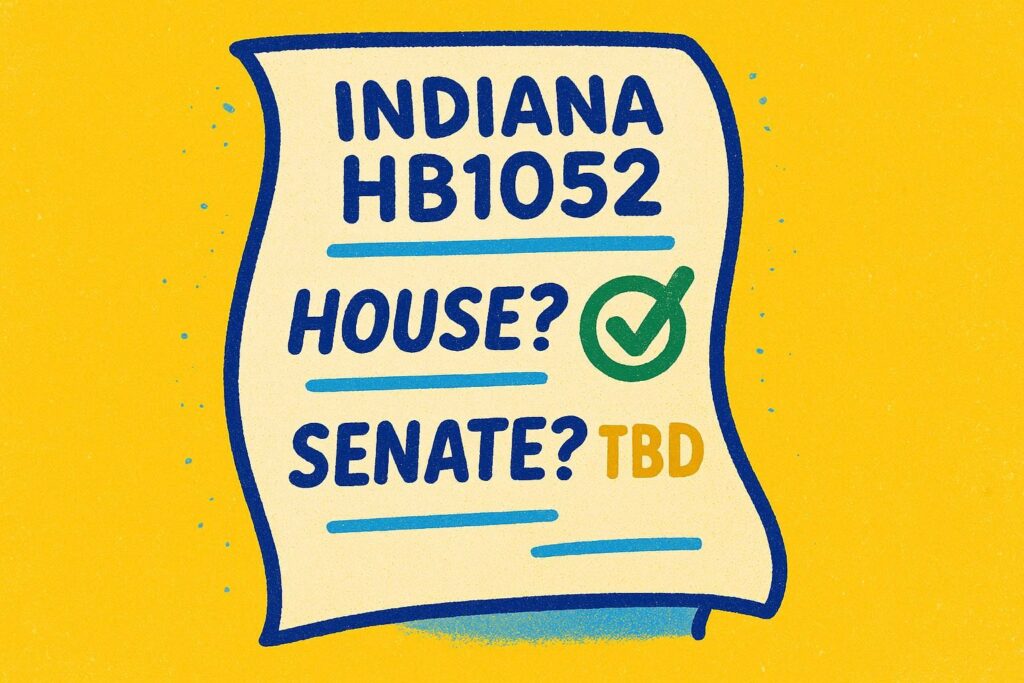Remember when the first bill addressing sweepstakes gaming in 2025 was actually written to regulate the industry, not ban it?
In January, New Jersey Assemblyman Clinton Calabrese introduced Assembly Bill 5196, which would have created a regulatory structure for sweeps casinos in which the operator would need to partner with a brick-and-mortar casino, be 21-plus, and pay the same 15% revenue tax as real-money iGaming operators.
However, Calabrese later pulled AB5196 in April … after introducing a separate bill, Assembly Bill 5447, which would ban sweeps operators in New Jersey. And that bill is currently advancing through the committee stages in the Assembly.
So far, no other state has seen a sweeps regulation bill introduced.
That begs the question of motivation.
If the intent of a sweeps ban bill is to protect existing online gambling operators in the state, so be it. You could make arguments either way as to the validity of that stance, and there are fair points to be made on both sides.
If the intent of a sweeps ban bill is to protect consumers, though, there are still valid points on both sides, but things can get a bit murky.
Especially in states with no legal online gambling, one can make a strong argument that banning sweeps sites could push online players toward illegal offshore betting sites that are notorious for poor, unchecked treatment of customers. Meanwhile, regulating sweeps sites — again, especially in states with no current real-money online gambling — would provide a safer space for this type of activity and prevent customers from accessing the Bovadas of the world.
“The SPGA continues to call for fact-based policymaking and smart, balanced regulation that protects consumers, supports innovation, and allows millions of adult Americans to continue to enjoy free-to-play sweepstakes games safely and legally,” a spokesperson for the Social and Promotional Games Association told Sweepsy.
Sweeps opponents may counter this argument by saying the dual-currency Sweeps Coin model of gaming is similarly exploitative as the practices of these offshore sites, as they have argued throughout 2025.
“[Sweeps operators] deploy legal acrobatics to avoid calling themselves betting or gambling,” said American Gambling Association President Bill Miller in February, “only then to offer products that most would most universally would agree are gambling, yet without the safeguards and regulatory constraints that build consumer trust.”
But, for now, let’s look at Google search data. It goes beyond talking points and illustrates what consumers are currently searching for, and that can help inform whether sweeps regulation or a ban would be more universally helpful.
Who’s flocking to Bovada?
First, we checked where people are searching most for “Bovada,” the most popular offshore betting site, over the last 30 days.
Google Trends ranks states by what percent of total searches in that state were for the given search term. That way, population is irrelevant — it’s about proportion of searches, rather than search volume.
Here’s the top 10:
- Mississippi — Online gambling is largely illegal, except for online sports betting when on the premises of a retail casino. The percentage of “Bovada” searches was more than twice as high as the second state on the list. Mississippi nearly passed a sweeps ban bill, but it failed after an online sports betting amendment was tacked onto it.
- Alabama — No regulated real-money online gambling of any kind.
- Georgia — Nothing is allowed, other than the online lottery.
- California — Again, nothing allowed. No online sports betting, no online casinos.
- Texas — Same story. No online gambling. And a bill advancing through the legislature could potentially target sweeps casinos.
- South Carolina — Nothing.
- New Mexico — Also … nothing.
- Minnesota — Zilch.
- Alaska — Nada.
- Wisconsin — Nope.
So … the 10 states where “Bovada” searches are most popular all don’t have online casinos or online sports betting. That doesn’t feel like a coincidence. However, only one of these states considered a sweeps ban bill this year. (We’ll see how things progress with the Texas bill.)
Chumba Casino is more popular than Bovada, at least in Google Searches
Over the last 30 days, “Chumba Casino” searches have been 28.3% more popular than “Bovada” searches. Here’s the top 10 for “Chumba Casino” searches — and there’s some crossover with the previous list:
- Mississippi
- Alabama
- Arkansas
- North Dakota
- Louisiana
- Oklahoma
- Minnesota
- New Mexico
- Indiana
- Iowa
Five of the top 10 were also in the “Bovada” top 10. Mississippi was No. 1 for both. Louisiana, at No. 5, is one of four states with active sweeps ban bills still progressing through the legislature.
Other searches directing consumers to potentially unsafe sites
We also took a look at other search terms that could lead players to unsafe sites. These searches aren’t nearly as popular as “Bovada” or “Chumba Casino”, but they do indicate how Americans currently seek out online gambling sites where they can circumvent laws and regulations — suggesting a need for more regulated options.
The acronym KYC stands for “Know Your Customer” and it refers to the measures online gambling operators have in place to verify things like age, identity, and financial information in order to help prevent fraud, stop money laundering, and promote responsible gambling.
Over the last 30 days, Google has registered spikes for the search term “no kyc casino” in five states:
- Pennsylvania — Real-money iGaming and sports betting are legal here, and several noteworthy sweeps operators have voluntarily left.
- Maryland — A sweeps ban bill ran out of time this year, but the state did issue cease-and-desist letters to several sweeps operators, and operators are leaving.
- New Jersey — Online gambling is alive and well here, and a sweeps ban bill is progressing through the committee stages.
- Washington — No online gambling, and state law effectively prohibits sweeps gaming as well.
- Virginia — There is online sports betting and an online lottery, but no online casinos. Virginia has remained out of the sweeps debate.
Along the same lines, Google has seen measurable search activity for “no id casino” in five states over the last 30 days:
- Colorado — Online sports betting is legal, but that’s it. Sweeps operators are free to exist.
- Michigan — All forms of online gambling are legal, and the state’s gaming commission has positioned itself against sweeps, with cease-and-desist letters to operators such as VGW, which owns Chumba Casino, LuckyLand Slots, and Global Poker.
- Washington
- Florida — Online sports betting is legal via the Hard Rock Bet app. There were two sweeps ban bills, but both failed to proceed before the end of session.
- California
“SPGA members are committed to responsible gaming and transparency,” the SPGA spokesperson told Sweepsy. “They adhere to a strict Code of Conduct and utilize top-tier regulatory compliance measures, including advanced age verification, KYC, location verification, and AML [anti-money laundering] technologies.”
Biggest takeaway: 33.3%
Finally, here’s a look at the 10 states where “sweepstakes casinos” searches are most popular over the last 30 days:
- Arkansas
- Oklahoma
- Minnesota
- Mississippi
- North Dakota
- Texas
- Indiana
- Iowa
- California
- New Mexico
A couple overall notes:
One, holy smokes, Mississippi, you are active in your sweeps and offshore Google searches.
And, two, of the 18 states tied to searches that would funnel customers to potentially unsafe, offshore sites, five have taken some form of action against sweeps operators this year — either considered a bill or issued a cease-and-desist — and one (Washington) does allow sweeps gaming. So that’s 33.3%.
Would adding regulated sweeps gaming steer some of those customers away from searching for “Bovada” or “no kyc casino” or “no id casino”?
That’s up to stakeholders, legislators, gambling commissions, and lobbyists to hash out. But it’s interesting to consider.









